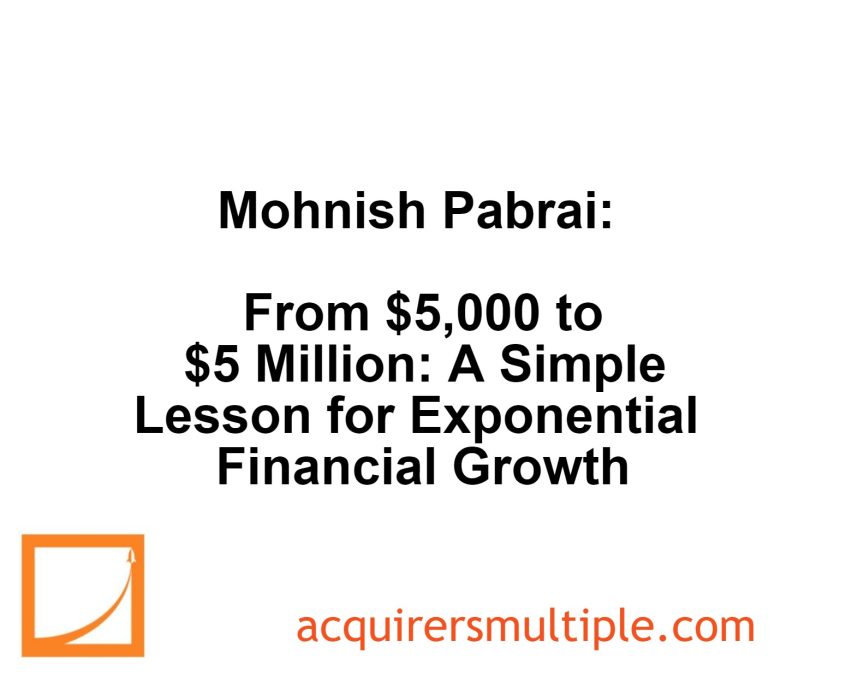During this session with YPO Delhi, Mohnish Pabrai explains the concept of compounding to his daughter during a late-night drive. He uses her summer internship savings of $5,000 as an example, explaining how investing it in an IRA with a 15% annual return could grow to $5 million by the time she’s 68, given the power of compounding.
He emphasizes that the key to maximizing wealth through compounding is starting early, as small amounts can grow significantly over time with consistent returns. His daughter grasps the concept, understanding that compounding’s exponential growth is crucial for long-term financial success.
Here’s an excerpt from the session:
People often have difficulty with the concept of compounding because it’s not linear; it’s basically on a log scale. We don’t normally think in a log scale, but it’s really important to understand and think in those terms.
My younger daughter, who went to NYU, was living in California at the time. I used to pick her up at like 1 or 2 in the morning from LAX, and we lived about 50 miles away, so we had a long hour-plus drive back home. She’d usually be falling asleep, so one time, I decided this was a good opportunity to give her a lesson on compounding.
I told her, Momachi you’re going to have an internship this summer, and you won’t really need the money, so you’ll save about $5,000 over the summer. You’re 18 right now, so let’s say we put that money in an IRA—a retirement account that’s not taxed. If you give me power of attorney over the account, and I manage to generate a 15% return on that $5,000, let’s see what happens.
You’re 18 now, and from 18 to 68, that’s 50 years. If the money doubles every 5 years, you’ll have 10 doubles by the time you’re 68. Ten doubles is a magical number—1,000. So, by the time you’re 68, that $5,000 will have turned into $5 million. And let’s say you do another internship when you’re 19 and save another $5,000 or $6,000. That could add another $5 or $6 million.
And at some point, you’ll graduate, get a job, and be able to save even more. How much money will you have when you’re 68? By now, she was wide awake. She said, It’s too big a number; my head will explode.
I was happy she got it, and I told her, The important thing is that you start early.
You can watch the entire discussion here:
For all the latest news and podcasts, join our free newsletter here.
Don’t forget to check out our FREE Large Cap 1000 – Stock Screener, here at The Acquirer’s Multiple:




One Comment on “Mohnish Pabrai: From $5,000 to $5 Million: A Simple Lesson for Exponential Financial Growth”
What are some common misconceptions people have about compounding, and how can they be addressed to improve financial planning?